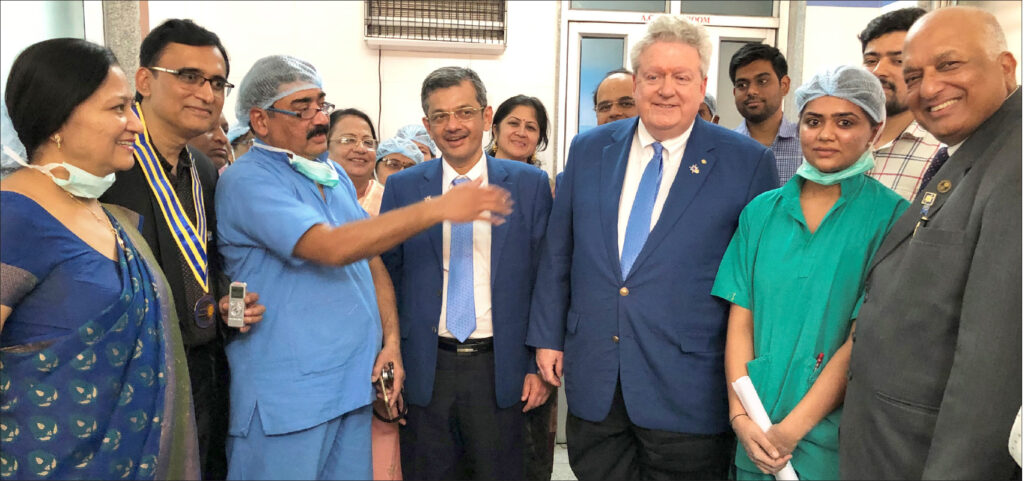During his one-day trip to participate in the PETS and SETS training programme of RID 3030 held in Amravati, Maharashtra, incoming RI President Mark Maloney showed a lot of interest in visiting the local community projects being done by the Rotary Club of Amravati Midtown, a 40-year-old club with 180 members.
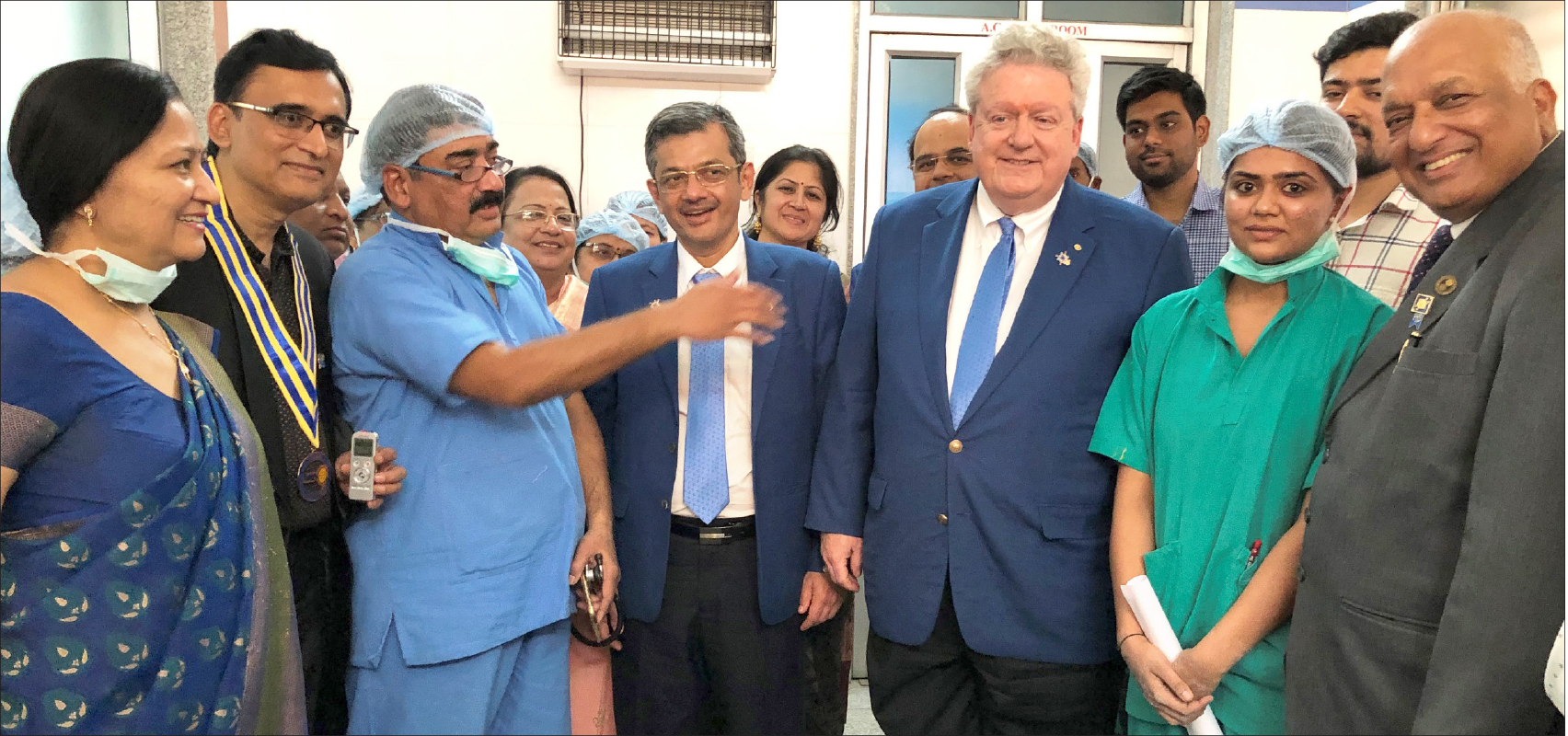
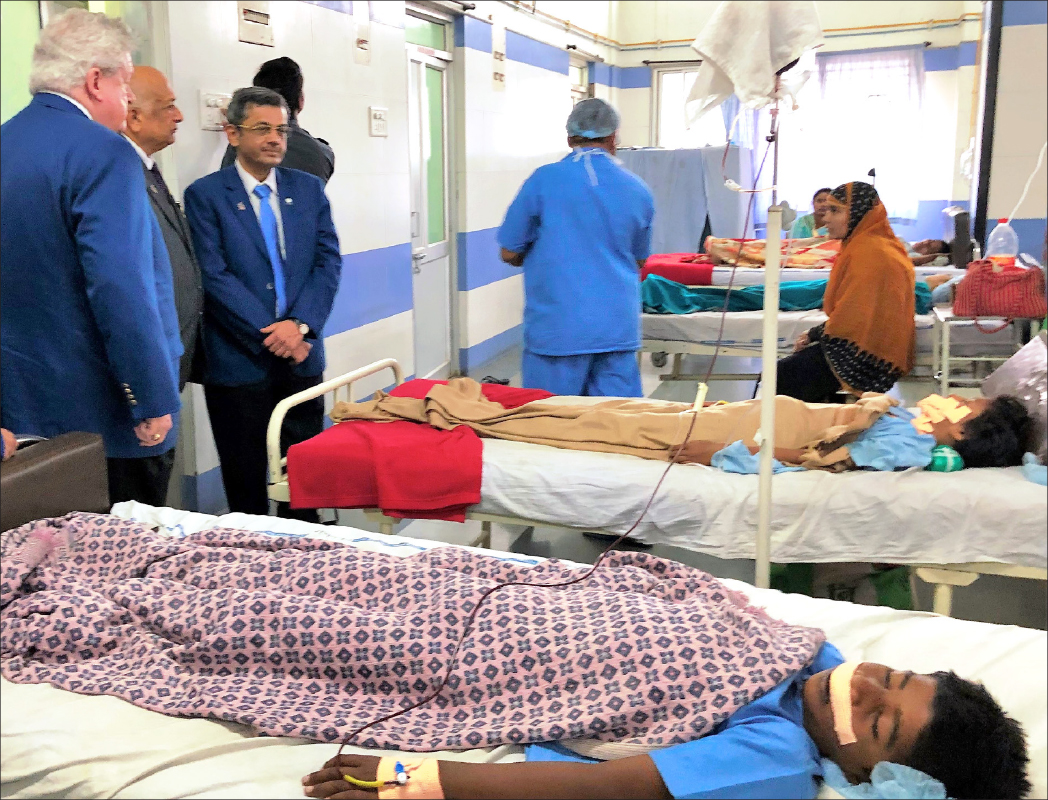
Accompanied by RIDE Bharat Pandya, he was first taken to the Rotary Human Milk Bank and Incubator Unit put up at the Dr Panjabrao Deshmukh Medical College in Amravati as a joint project of RC Amravati Midtown, RID 3030, and RC Gautier, US, RID 6840, done through a global grant.
Here the nurses explained to Maloney that human milk is taken from lactating mothers and given to babies who have either lost their mothers in childbirth or whose mothers are not able to nurse them due to a medical problem or insufficient milk.
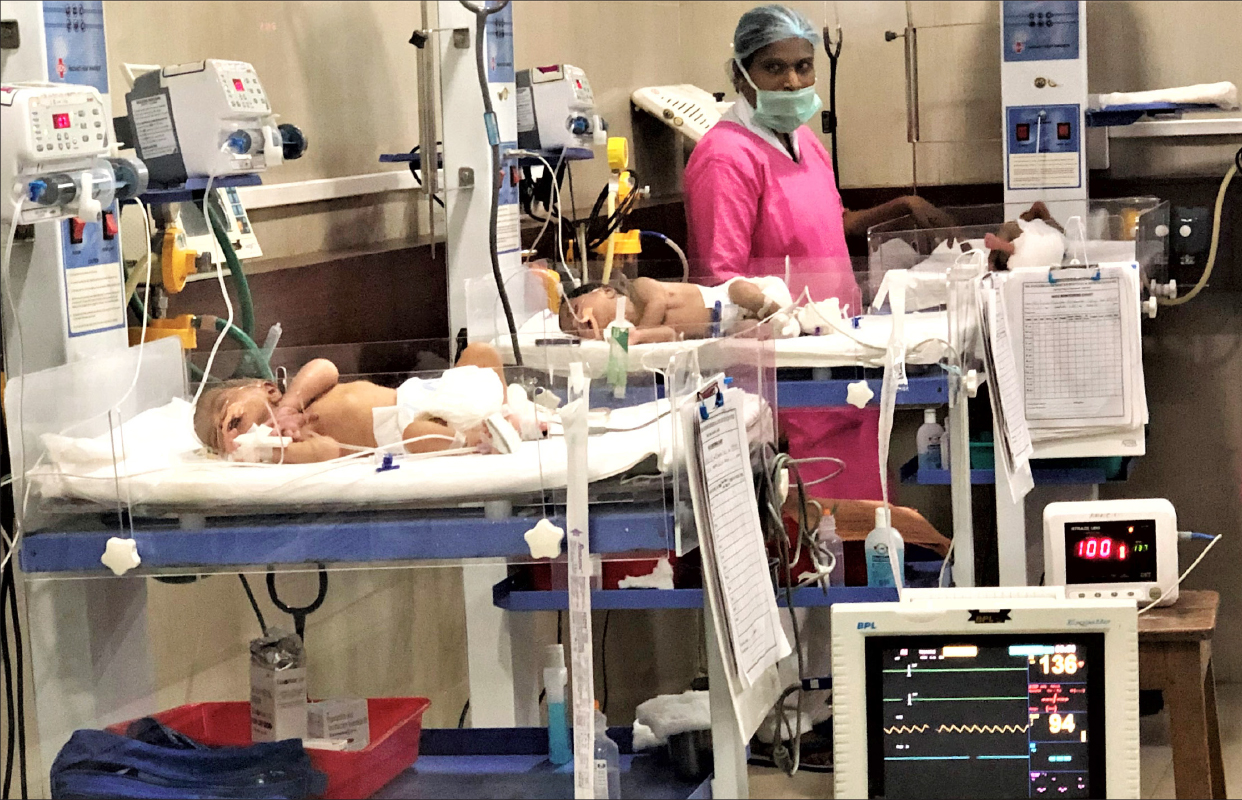
PDG Kishor Kedia explained that there are two units of this milk bank, the satellite unit being some 6 km away from the hospital. “This was the brainchild of one of our members, Dr Rajesh Boob, who is a paediatrician. He felt that so many babies were deprived of human milk for various reasons and we should set up such a bank to help them.”
Maloney was introduced to one of the donors, Kavya Jagmalani, who is the wife of a Rotarian from this club. She has donated breast milk to this unit, and said with pride, “I am so happy to do this for our community. It is a unique privilege that I have as a woman… to be able to able to help somebody else’s baby and a mother who is not able to give her own milk to her child.”
Maloney was next taken to a gas crematorium which has been set up by the club in partnership with a club in Brazil and through a matching grant. The crematorium cost around ₹1.4 crore and was inaugurated during 2013–14, when Kedia was the DG, and he donated ₹21 lakh for this project in the name of his parents.
The two RI leaders then inspected a mammography van which tours the surrounding villages to screen women for breast cancer. District 3030 has seen some tough times over stewardship issues. Kedia, a member of RC Amravati Midtown, said that the clubs in the district being barred from accessing TRF funds last year did not deter his club members from continuing their good work in the community. “Last year alone we did projects worth ₹3 crore, and the mammography van cost ₹1.1 crore.” His personal donation in this project was ₹11 lakh, and “we raised the rest of the money from our club members and other citizens of Amravati.”
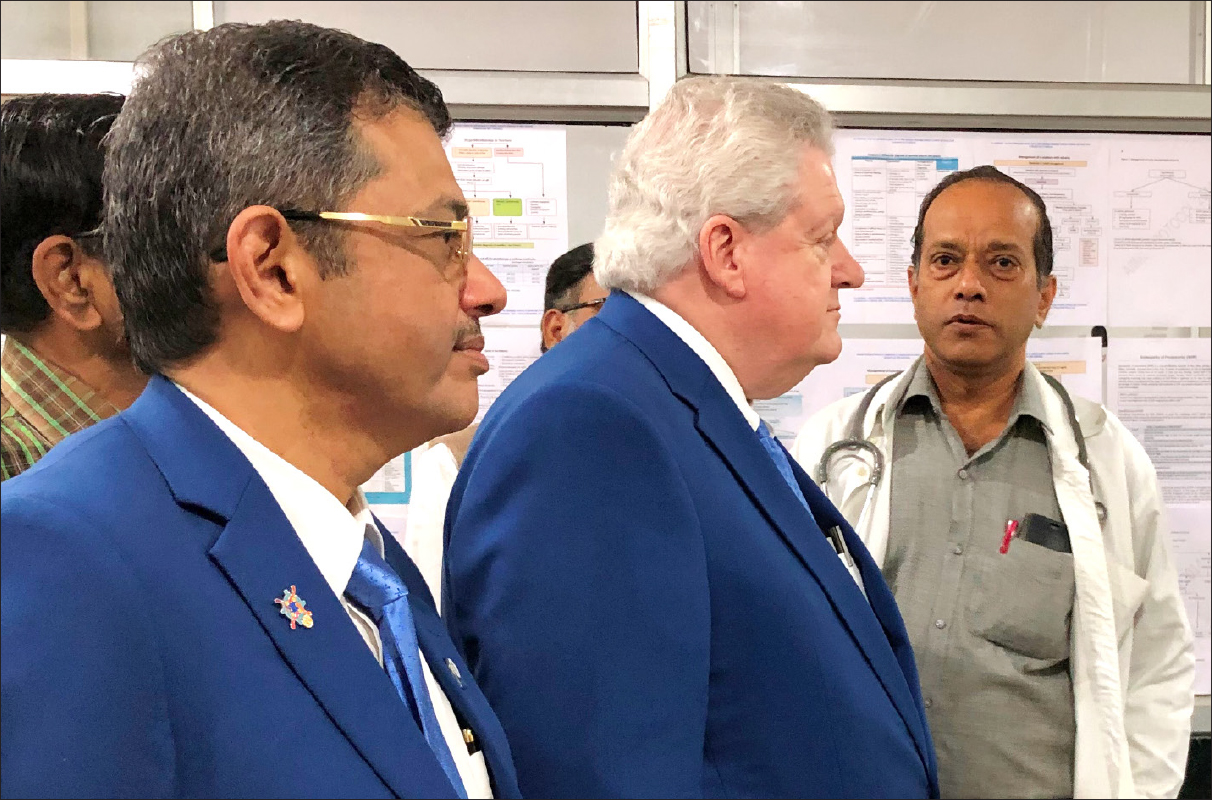
Asked about CSR funds from corporates, the PDG said that this isn’t feasible as Amravati doesn’t have many industries, being an agrarian area. But as this is a drought prone region, many farmers have committed suicides and “our club has given Rs 20,000 each to the families — widows or children — of 80 such farmers to help them start a micro enterprise such as a poultry or a goat farm, etc. Last year, we also organised nutritious food for AIDS- afflicted patients.”
The last project to which Maloney and Pandya were taken was the most impressive — a two-day mega plastic surgery camp for 110 people. Conducted in the spanking clean and sprawling Government Superspecialty Hospital in Amravati, the project was led by Dr Bharat Shah, a senior plastic surgeon, who is a member of this club and who has been running such a camp for 25 years. President of the club, Dr Sushil Sikchi, who accompanied the senior leaders, said this being the 25th year of the club’s project, as many as 110 patients had been chosen for corrective surgery through prior screening.
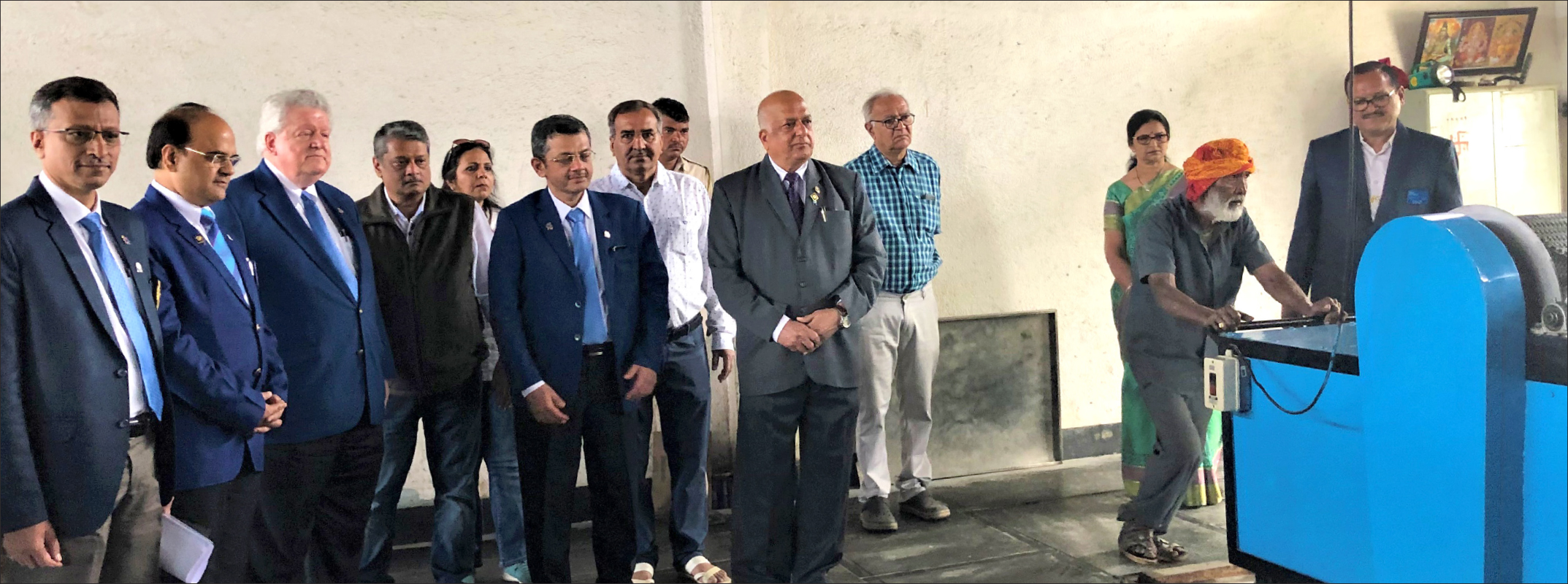
Maloney, who visited the ward, asked detailed questions on how the patients were selected and what kind of prob lems were most com mon. “We conducted a check-up camp earlier about which publicity was done mainly through social media and word of mouth,” explained Dr Shah, who added that he was assisted by 12 plastic surgeons from private hospitals in Amravati and three surgeons from Mumbai.
What was heartening to see was that apart from his wife, Dr Jagruti Shah, a gynaecologist, who has been assisting him with this camp for the last 25 years, the team of doctors were joined by their 25-year-old daughter Apoorvi, who has completed her MBBS degree course and is now training to be a plastic surgeon.
Asked about the main problems faced by the patients, most of them burn victims, Dr Jagruti explained that some of the patients who had been selected had suffered the burn injury long years ago, sometimes as far back as 20–25 years. “Most of these people are from poor families, many are from the Adivasi belt, interior villages and the neighbouring State too, and when they sustain burn injuries, they cannot afford to get the required operation done. So they go to a public health centre and get some basic treatment which is not good enough.”
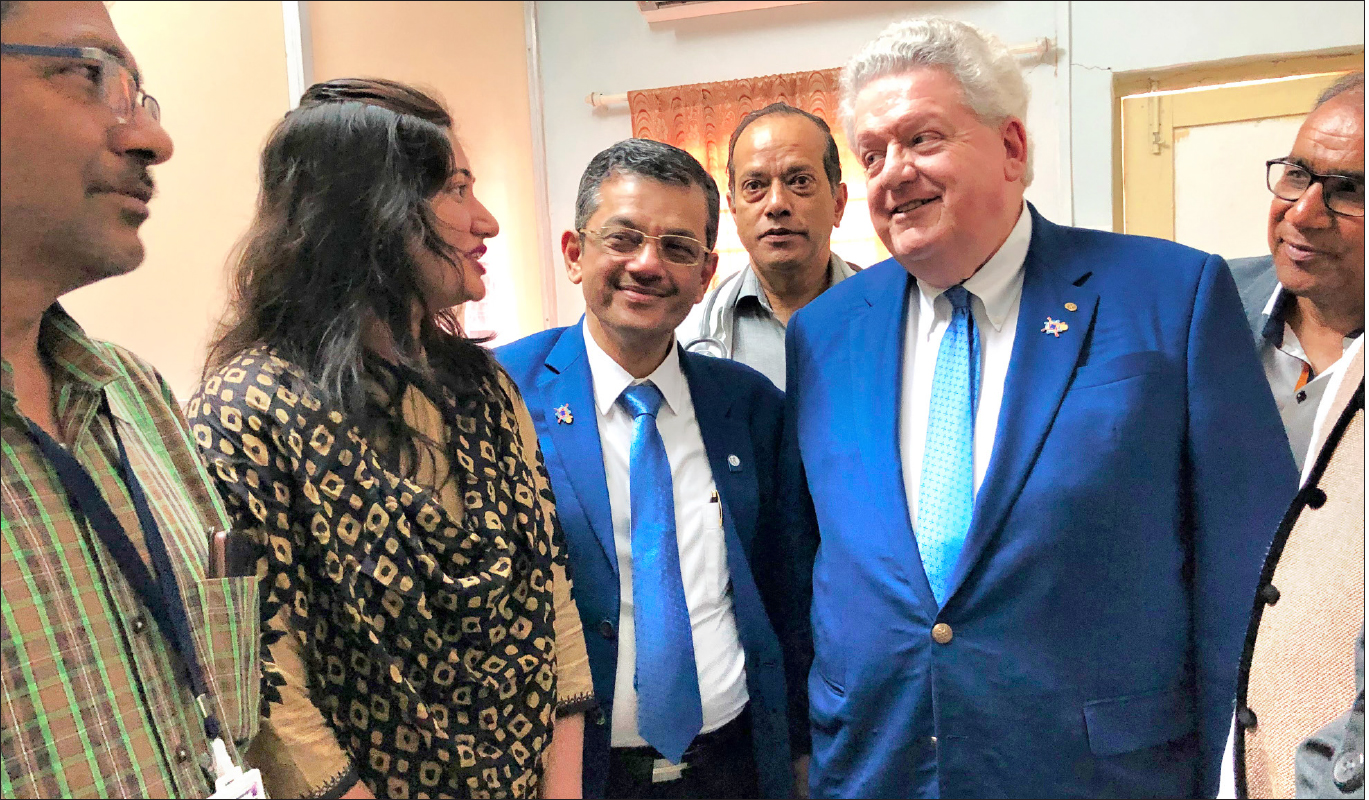
Because they do not get immediate or appropriate treatment “they develop complications such as contractures,” explained Dr Pandya, a surgeon himself.
We saw women at the camp with such contractures which had resulted in some women having their chin sticking to their neck or their elbows fused to their side. These defects will be repaired at this camp “so that we help the women overcome a double stigma — social stigma due to their appearance and also inability to work when their elbow is stuck to their body,” said Dr Shah.
He added that the camp would also do operations on children born with congenital defects such as cleft palate, fingers stuck together, urinary deformity, etc. The club had raised ₹5 lakh to pay for the material to be used during surgery; while the surgeons volunteered their services totally free of cost, the hospital took care of the patients, their attendants and of course medical infrastructure, including operation theatres.
Dr Shah said that if a total cost was to be put on the camp for the doctors’ fees, the project cost would come to “around ₹50 lakh if the operations were to be done in private hospitals.”
Dr Jagruti added that of the 110 patients, 22 were second, third, or fourth time patients because the deformities are so bad that the corrective surgery cannot be done in a single procedure. “They are returning to us because they have faith in Rotary and know that we will give them a solution,” she smiled.
The last word has to go to Apoorvi, the young plastic surgeon in the making. “Over the last so many years, I have watched my parents working so hard to serve the community. What they have been doing is so inspiring that I’ve always known that this is my calling,” she smiled, taking a few minutes off from the duties assigned to her.
Pictures by Rasheeda Bhagat






